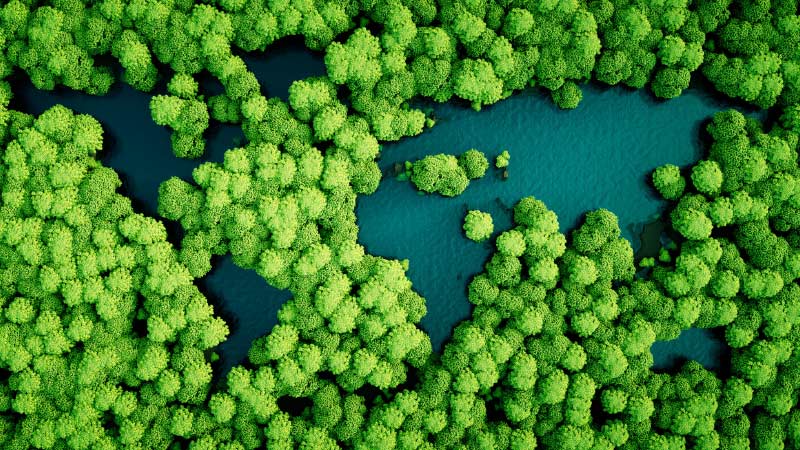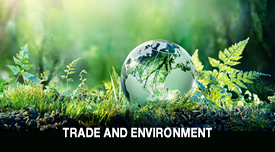Fish and seafood are some of the most traded food commodities. In 2017, around 38 per cent of global fish and seafood production was traded internationally generating US$ 152 billion. Over 58 per cent of this trade in volume originates in developing countries where net trade income (exports minus imports) was valued at US$ 37 billion in 2016.
Unfortunately, the unsustainable overexploitation of living aquatic resources during recent decades has led to overfishing and the degradation of fish stocks, habitats, ecosystems and biodiversity. Currently, about one-third of global fish stocks are fished at biologically unsustainable levels, causing an economic loss estimated at US$ 83 billion per year.
New opportunities to address these and other oceans-related concerns have arisen with the adoption of the 2030 Agenda for Sustainable Development and in particular Sustainable Development Goal (SDG) 14, which seeks to: “conserve and sustainably use the oceans, seas and marine resources for sustainable development”.
At the UN Ocean Conference of June 2017, UNCTAD, FAO and UN Environment jointly deposited a set of voluntary commitments to support member countries with technical assistance, capacity building and information dissemination on the trade-related issues associated with SDG 14.
At the Second United Nations Oceans Forum on Trade-related aspects of SDG 14, July 2018, UNCTAD, FAO and UN Environment were requested by Member States and other stakeholders to prepare a draft joint Plan of Action to accelerate the implementation of SDG 14 through trade.
Objective
Together with the support and guidance from Member States, the three agencies are now presenting an inter-agency Plan of Action (IAPoA) on trade-related aspects of SDG 14 to “accelerate the achievement of trade-related targets of SDG 14 (namely targets 4, 6, 7 and b) through improved trade and trade-related policies that safeguard food security and contribute to the conservation and sustainable use of oceans, living marine resources and livelihoods”.
Outcomes and activities
The objective of the JPoA will be achieved by intervening in three outcome areas:
- promoting multilateral oceans and trade-related reforms through dialogue, cooperation and consensus building;
- strengthening national and regional capacities on policy frameworks for sustainable seafood trade and the development of other oceans based sectors; and
- enhancing awareness, knowledge and capacity to implement effective governance & sustainable seafood trade and other oceans based sectors (see figure below).
OutcomeActivities
1: Dialogue, cooperation and consensus are enhanced towards multilateral reforms in support of SDG 14Annual Oceans Forum, policy briefs, technical advice on fish subsidies notifications and seafood Non-Tariff-Measures (NTM) mapping
2: National and regional capacity are strengthened to design and implement supportive policy frameworks for sustainable seafood tradeTargetted Blue economy reviews, capacity building to support national fisheries policy reform, fishery improvement programmes and mapping trade in fisheries services
3: Market leaders, government officials, scientists and civil society have enhanced awareness, knowledge and capacity to implement practices and tools for effective governance & sustainable fish tradeDevelopment of best practices for sustainable seafood trade, best practices training for small scale fisheries, regional capacity building workshops, communication campaign & resources dissemination
The time framework for the JPoA will be 2020-2025 in the short and medium term, and 2025-2030 for its final implementation. A pamphlet summarising key aspects of the JPoA can be found at (hyperlink).
Inviting Member States to support the IAPoA
The three agencies are seeking support for the IAPoA, being currently the only inter agency platform for implementation to harness sustainable use and sustainable trade in seafood and other oceans-based sectors, as a critical endeavour for accelerating implementation of trade related SDG 14.
To provide interested parties with a better understanding on the proposed functioning, activities, and outcomes of the IAPoA, the three agencies are cordially inviting Member States to join this first public presentation. The session will provide an opportunity for the three agencies to respond to questions on relevance, scope, content and proposed benefits of the IAPoA, and gather feedback.

Related
Topic
 Trade and environment
Trade and environment






